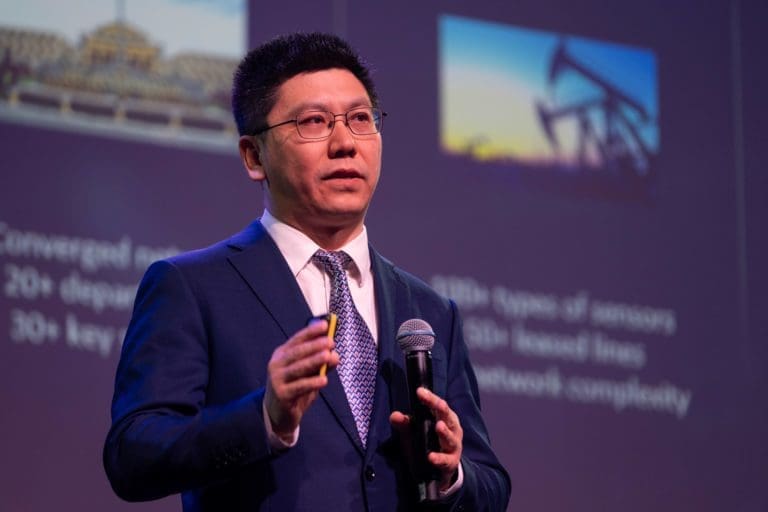During the recent Huawei Eco-Connect Sub-Saharan Africa 2023, Steven Zhao, Vice President of Huawei’s Data Communication Product Line, delivered a keynote speech outlining the security threats facing networks today. The speech, which was titled “Huawei Intelligent Cloud-Network: Innovations Never Stop”, also saw Zhao outline how Huawei products are helping address those threats.
According to Zhao, the biggest security threats facing networks today include remote work, the cloudification of enterprise services, and ransomware.
“Remote work has become mainstream in enterprise campuses, bringing a surge in IoT endpoint connections,” he said. “Additionally, the cloudification of enterprise services has accelerated, leading to a sharp increase in WAN traffic in enterprise branches. This, in turn, increases exposure risks.”
“Ransomware, meanwhile, poses a significant threat to enterprise data centres, as it can spread rapidly and uncontrollably, resulting in substantial financial losses,” he added.
The three solutions which Huawei provides to overcome these challenges include:
- On-campus networks: Huawei offers classified protection to identify and handle threats in real-time. This shortens threat determination from hours to minutes and slashes security O&M costs by 60%.
- In branches: Huawei Qiankun CloudService provides on-demand subscriptions and real-time upgrades for security capabilities and handles threats within seconds, improving O&M efficiency by 80%.
- In data centres: Huawei provides unique multi-layer ransomware protection solutions powered by network-storage collaboration. The solutions deliver a ransomware detection rate of higher than 99.9%, greatly reducing service continuity risks.
Further underlining Huawei’s commitment to securing the network, Matamela Aubrey Mashau, CTO of Huawei’s Southern Africa Enterprise Solution Sales Department introduced the company’s unique multi-layer “endpoint + network + storage” collaborative protection solution at the IP network sub-forum, also held during the Eco-Connect event.
“Ransomware has become a major network threat facing the globe and is the top concern of CXOs,” he said, emphasising the need for such solutions.
Ransomware floods data centres and grows by 3.5 times year by year. Accordingly, Huawei has introduced the industry’s first ransomware protection solution powered by network-storage collaboration. Huawei’s solution blocks ransomware attacks at the network border and provides network-security collaboration to prevent ransomware from spreading internally, with a detection rate of up to 99.9%.
Huawei’s unique multi-layer “endpoint + network + storage” collaborative protection solution features accurate intelligent threat detection, fast intelligent threat handling, and stable intelligent data recovery. In this way, ransomware can be accurately identified, ensuring user data security. In addition, the overall solution provided by Huawei integrates the collaborative capabilities of the cloud, network, security, and endpoint, handling threats within just seconds.
Visitors to the conference, which brought together more than 3000 industry leaders and partners from across sub-Saharan Africa, also got the chance to see Huawei’s latest security products and scenario-specific solutions in action. These included Huawei’s HiSec 3.0 cloud- network-security integration security protection system, anti-DDoS solution and ransomware protection solution powered by network-storage collaborations that are exclusively designed for data centres, and all-in-one intelligent security gateways for campuses and branches.
Huawei’s HiSec 3.0 Solution can provide comprehensive security protection for customers while solving pain points, including difficult threat detection, single-point defence, low manual handling efficiency, and high-security O&M costs.
Collaborative defence at network and storage layers successfully guarantees the security of data assets for enterprises. Currently, volumetric DDoS attacks frequently target data centres with decreasing attack costs, causing network congestion and service interruption. Huawei’s AntiDDoS series products are based on “CPU + NP” collaboration for defence acceleration. A single Huawei device can deliver a 2.4 Tbps DDoS attack defense capability, which is equivalent to that of six competitors. One device can also block over 99% of attacks in milliseconds, ensuring secure and stable running of customer services.
The HiSecEngine USG6500F series all-in-one intelligent security gateway, Huawei’s new security product, integrates multiple capabilities, such as security, routing, switching, LTE, and PoE. More than ten security feature packages can be loaded on demand for flexible service orchestration. These intelligent security gateways redefine branch security with simplicity. A single gateway can serve multiple functions to solve problems such as weak security protection at campuses reducing customer costs by 30%.
In 2023, Huawei will continue to invest in security technologies, develop top-notch network security products and solutions, and safeguard the digital transformation of thousands of industries. Huawei is working to build a proactive protection system for the security of governments and enterprises in sub-Saharan Africa and across the globe.
